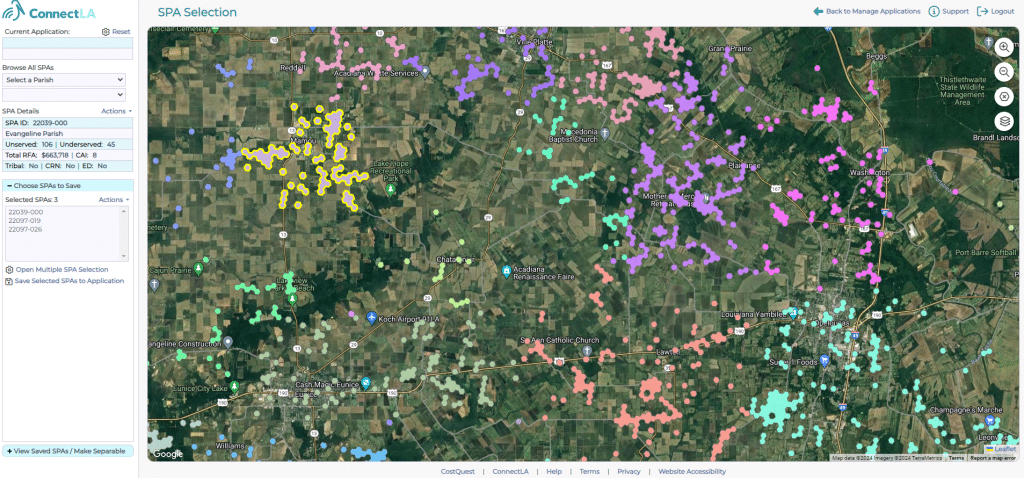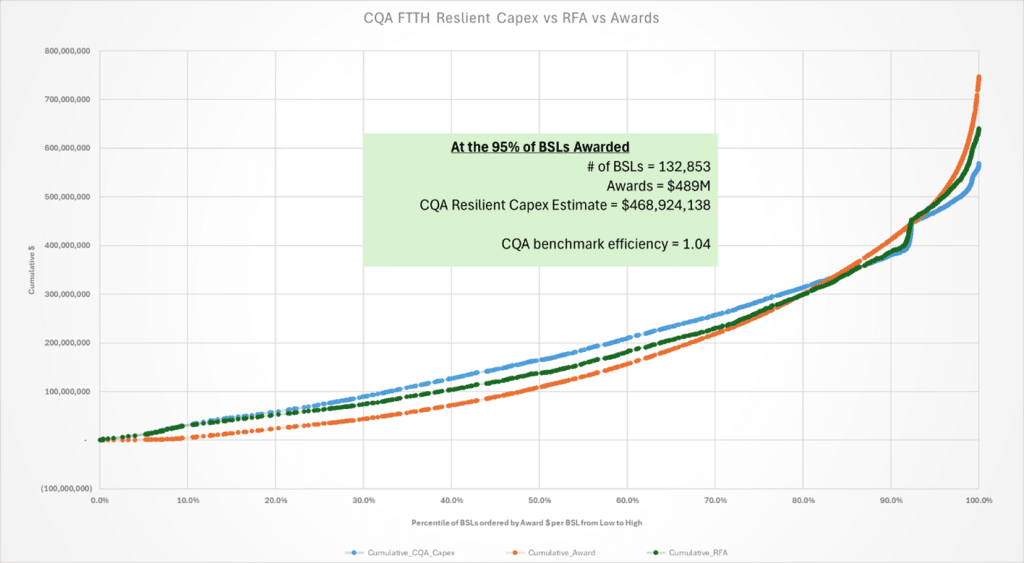CostQuest is known for its advanced modeling of costs to deploy broadband. Over the years, the work CostQuest has done with the FCC, NTIA, States, and a multitude of ISPs has allowed for more accurate targeting of public funds, more precise valuations, and better insight into broadband’s critical investment needs.
In Louisiana, CostQuest’s cost modeling served as a foundation for the reference funding amount for all BEAD (Broadband Equity Access and Deployment Program) funding-eligible locations, allowing fund administrators to know in advance approximately what bids would likely be reasonable.
ConnectLA, the State of Louisiana’s broadband office that manages the BEAD program, was the first State to develop and deploy a funding plan approved by NTIA to utilize its BEAD allocation to serve its BEAD eligible unserved and underserved locations. The funding program, aptly named GUMBO 2.0, leveraged data, modeling, and practical awarding strategies to arrive at a successful implementation in less than one year. ConnectLA’s program was the first among all the states to award funds.
The Approach
CostQuest’s Location Fabric and cost data enabled ConnectLA’s program administrators to both assess the validity of the bids made as well as evaluate the reasonableness of the requested funding amount. Early in the program development, CostQuest worked with the ConnectLA team to develop unique funding areas called SPAs (sub-project areas). These areas included Broadband Serviceable Locations (Fabric locations) that were eligible for funding under the BEAD grant program. CostQuest also modeled the expected funding needed to serve the eligible Fabric locations within each SPA, referred to as the Reference Funding Amount or RFA.
The Reference Funding Amount for each SPA was shared with grant applicants and used to assess bids through CostQuest’s Grant Award Management Platform, a SaaS application used to anonymously accept, assess, and manage awards to grant applicants through two rounds of funding.

Example of the SPA Selection page in CostQuest’s Grant Award Management Application.
The Results
The program resulted in awards of over $748 million to connect almost 140,000 eligible Fabric locations. Total BEAD funding allocated to Louisiana was $1.35 billion, leaving Louisiana funds for non-deployment efforts. The average awarded funding per Fabric location was $5,355.
CostQuest’s modeled capital costs in Louisiana tracked with the awards and came within 4% of the awarded bids for the 95th percentile of all eligible Fabric locations in ConnectLA’s program.
In contrast, in an independent assessment of another broadband funding programs that did not use reference funding to manage awards, it was found that awards were 200% higher than what CostQuest’s models would have estimated.

Results of CostQuest’s cost benchmark efficiency for ConnectLA’s BEAD Grant Awards.
Conclusion
Providing a modeled cost as a reference, from an independent expert, set expectations, discouraged outlier bids, and minimized the potential for collusion between bidders. Having all parties informed as to the expected outcomes allows for a more efficient awarding of funds and minimizes waste, fraud, and abuse.
The ConnectLA experience serves as a clear example of how State governments can manage a grant awarding program efficiently and effectively. A well-designed bidding process coupled with exhaustive, accurate data on locations to be served and their approximate cost enables decision makers to run a smooth, effective program.